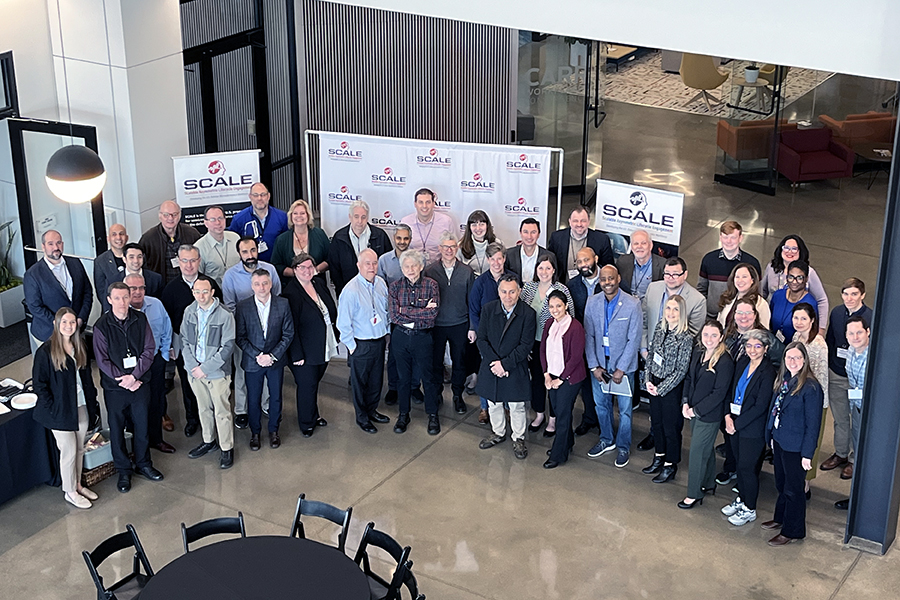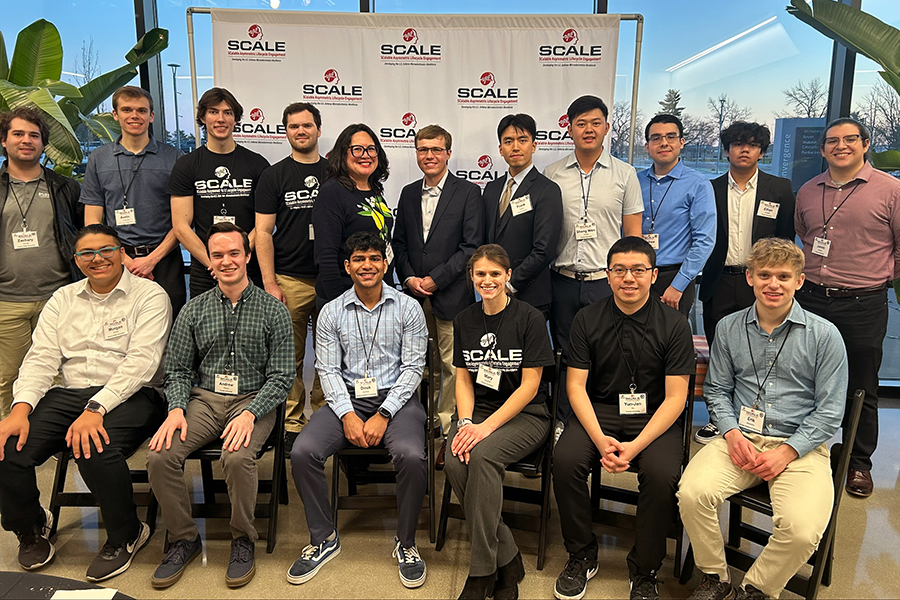SCALE workshop addresses workforce needs and training strategies in semiconductor industry

Purdue University hosted a Scalable Asymmetric Lifecycle Engagement (SCALE) workshop titled “Preparing U.S. Workforce in Heterogeneous Integration and Advanced Packaging (HI-AP)” Feb. 28-29 at the Convergence Center for Innovation and Collaboration.
Shubhra Bansal, an associate professor in the Schools of Mechanical Engineering and Materials Engineering, led the workshop, which was funded by Naval Surface Warfare Center (NSWC) Crane through a $2.25 million, three-year grant. The funding also provides undergraduate scholarships for hands-on research experiences with the goal of encouraging students to pursue careers in the defense microelectronics industry.
SCALE is the preeminent U.S. program for semiconductor workforce development in the defense sector. With Purdue at the helm, it is funded by the Department of Defense, managed by NSWC Crane and Air Force Wright-Patterson Aerospace Technologies, sponsored by the Office of the Under Secretary of Defense for Research and Engineering, and co-led by Peter Bermel, the Elmore Professor of Electrical and Computer Engineering, and Kerrie Douglas, associate professor in the School of Engineering Education. SCALE facilitates a different approach to training highly skilled U.S. microelectronics engineers, hardware designers and manufacturing experts to ensure the nation’s leadership in this critical area. Through regular meetings between SCALE’s industry and government partners, new in-demand skills and abilities are identified and then incorporated into college curricula.
More than 90 industry, government and academic leaders attended the HI-AP workshop with the goal of identifying technology-agnostic knowledge, skills and abilities for advanced packaging. Keynote speakers on Day 1 represented the CHIPS Research and Development Office, Intel and Lam Research. On Day 2, Sowmya Venkatramani, university program director for Intel Labs, highlighted her company’s workforce development initiatives. Workshop panelists included experts from Microelectronics Commons, NSWC Crane, IBM Research and the Semiconductor Research Corporation. Undergraduate students from SCALE’s four partner universities — Purdue, Georgia Tech, Binghamton University and Arizona State University — had the opportunity to showcase their research through a poster session.
In discussing the workshop, Mark Lundstrom, Purdue’s chief semiconductor officer, was reminded of a 1965 quote from Intel co-founder Gordon Moore, who famously said, “The future of integrated electronics is the future of electronics itself.”
“He was talking about integrated circuits — systems on chips,” Lundstrom said. “Today the future of electronics lies in heterogeneous integration and advanced packaging. This workshop addressed the critical need to prepare the workforce for this new era of electronics.”
Bansal agreed, adding that advanced packaging is important for increased functionality of future microelectronics systems.
“Addressing the anticipated talent shortfall in the semiconductor sector requires a multifaceted approach, engaging various stakeholders across government, industry, academia and non-profit sectors. Focusing on the talent gap is essential not just for maintaining technological leadership and economic competitiveness, but also for national security,” she said.
The Bansal Research Group focuses on materials and reliability for advanced packaging and renewable energy applications. Bansal co-leads the Heterogeneous Integration and Advanced Packaging technical area of SCALE with Amy Marconnet, an associate professor in the School of Mechanical Engineering and an expert in heat transfer and energy conversion.

